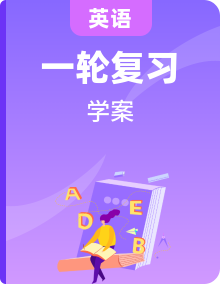若您為此資料的原創(chuàng)作者,認(rèn)為該資料內(nèi)容侵犯了您的知識(shí)產(chǎn)權(quán),請(qǐng)掃碼添加我們的相關(guān)工作人員,我們盡可能的保護(hù)您的合法權(quán)益。
高考專區(qū)
- 精品推薦
- 所屬專輯60份
-
2021屆高考英語(yǔ)人教版一輪創(chuàng)新教學(xué)案:第1編Book1Unit4 Earthquakes
-
2021屆高考英語(yǔ)人教版一輪創(chuàng)新教學(xué)案:第1編Book6Unit1 Art
-
2021屆高考英語(yǔ)人教版一輪創(chuàng)新教學(xué)案:第1編Book3Unit1 Festivalsaroundtheworld
-
2021屆高考英語(yǔ)人教版一輪創(chuàng)新教學(xué)案:第1編Book1Unit3 Traveljournal
-
2021屆高考英語(yǔ)人教版一輪創(chuàng)新教學(xué)案:第1編Book8Unit1 Alandofdiversity
-
2021屆高考英語(yǔ)人教版一輪創(chuàng)新教學(xué)案:第1編Book5Unit1 Greatscientists
-
2021屆高考英語(yǔ)人教版一輪創(chuàng)新教學(xué)案:第1編Book1Unit1Friendship
-
2021屆高考英語(yǔ)人教版一輪創(chuàng)新教學(xué)案:第1編Book2Unit1 Culturalrelics

2021屆高考人教版英語(yǔ)一輪創(chuàng)新教學(xué)案()
共60份
2024-02-01更新
-
2021屆高考英語(yǔ)人教版一輪創(chuàng)新教學(xué)案:第1編Book5Unit1 Greatscientists
-
2021屆高考英語(yǔ)人教版一輪創(chuàng)新教學(xué)案:第1編Book5Unit2 TheUnitedKingdom
-
2021屆高考英語(yǔ)人教版一輪創(chuàng)新教學(xué)案:第1編Book5Unit4 Makingthenews
-
2021屆高考英語(yǔ)人教版一輪創(chuàng)新教學(xué)案:第1編Book5Unit5 Firstaid
-
2021屆高考英語(yǔ)人教版一輪創(chuàng)新教學(xué)案:第1編Book6Unit1 Art



